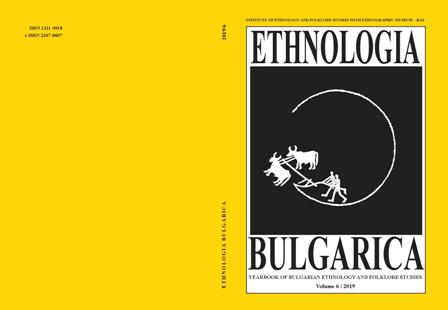‘Gezi Spirit’: Narrative Fragments and Modes of Articulation. Ethnography of Post-Protest (Istanbul 2013–2015)
‘Gezi Spirit’: Narrative Fragments and Modes of Articulation. Ethnography of Post-Protest (Istanbul 2013–2015)
Author(s): Zornitza DraganovaSubject(s): Politics, Anthropology, Social Sciences, Customs / Folklore, Geography, Regional studies, Political Sciences, History of ideas, Local History / Microhistory, Cultural Anthropology / Ethnology, Culture and social structure , Crowd Psychology: Mass phenomena and political interactions, Nationalism Studies, Rural and urban sociology, Radical sociology , Globalization, Geopolitics, Identity of Collectives
Published by: Институт за етнология и фолклористика с Етнографски музей при БАН
Keywords: protest culture; Gezi park; Turkey; youth;
Summary/Abstract: This text is based on an ethnographic study on the protests and civic initiatives that initially took place in 2013 but then continued with varying intensity throughout the following years. While applying the method of participant observation during the Gazi events’ and conducting interviews with individuals who had taken part in the protests, a main goal of this study is to grasp the transformation in the identification, articulation and presentation of important and secondary topics and problems that had been brought forward throughout the public discussions. The initial motivation of this study is the idea that after the first demonstrations and clashes, the interpretation of the political projects’ turbulence, of the reinvention of urban spaces, of the success or failure of diverse protest and resistance practices, gradually modifies the way the aforementioned events and ongoing processes are being thought and talked about. The research questions the respondents’ participation in protests, the constitution and disintegration of communities, the ‘diagnosis’, ‘prognosis’ and ‘rationale’ elements in respondents’ and informants’ micro-discourses and their acts in relation to diverse initiatives. The text attempts to systematize the observation data and the collected ‘narrative fragments’ within four ‘modes of articulation’: transformative, subjective, argumentative, and topological.
Journal: ETHNOLOGIA BULGARICA. Yearbook of Bulgarian Ethnology and Folklore
- Issue Year: VI/2019
- Issue No: 1
- Page Range: 67-87
- Page Count: 21
- Language: English
- Content File-PDF

